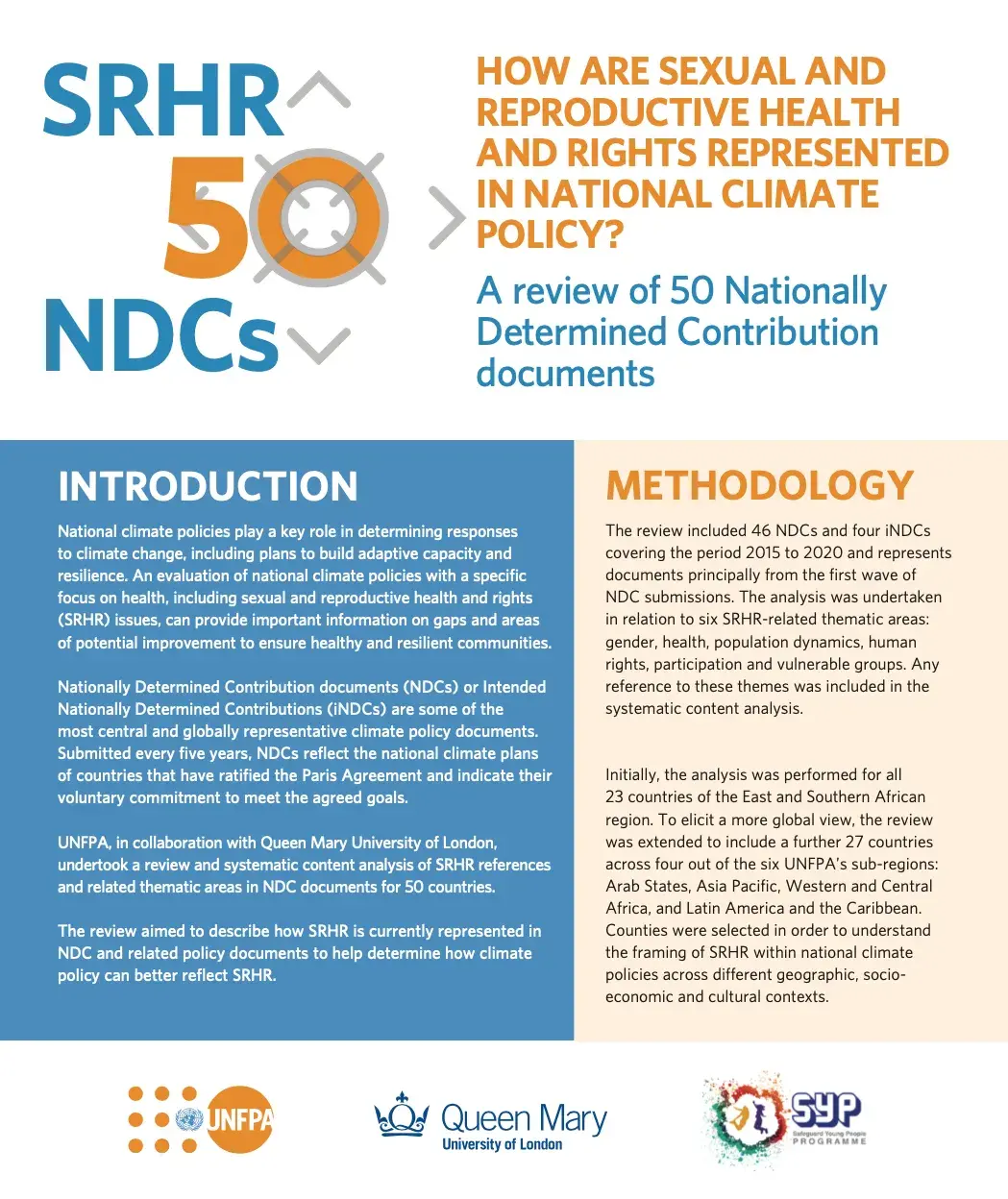National climate policies play a key role in determining responses to climate change, including plans to build adaptive capacity and resilience. An evaluation of national climate policies with a specific focus on health, including sexual and reproductive health and rights (SRHR) issues, can provide important information on gaps and areas of potential improvement to ensure healthy and resilient communities.
Nationally Determined Contribution documents (NDCs) or Intended Nationally Determined Contributions (iNDCs) are some of the most central and globally representative climate policy documents. Submitted every five years, NDCs reflect the national climate plans of countries that have ratified the Paris Agreement and indicate their voluntary commitment to meet the agreed goals.
UNFPA, in collaboration with Queen Mary University of London, undertook a review and systematic content analysis of SRHR references and related thematic areas in NDC documents for 50 countries.
The review aimed to describe how SRHR is currently represented in NDC and related policy documents to help determine how climate policy can better reflect SRHR.
The full report is available here.



